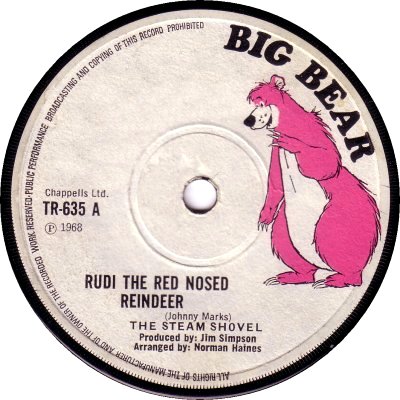
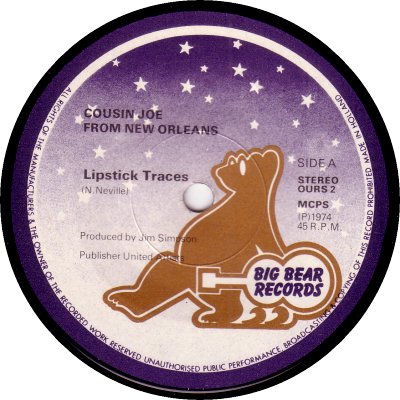
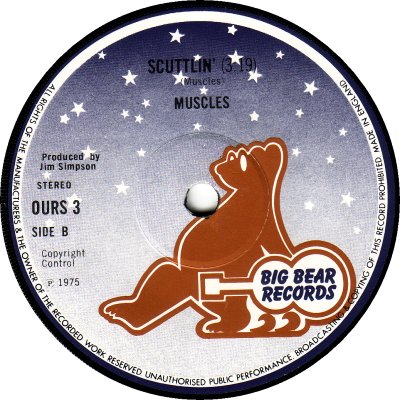
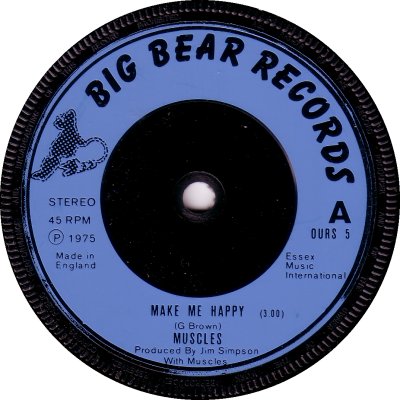
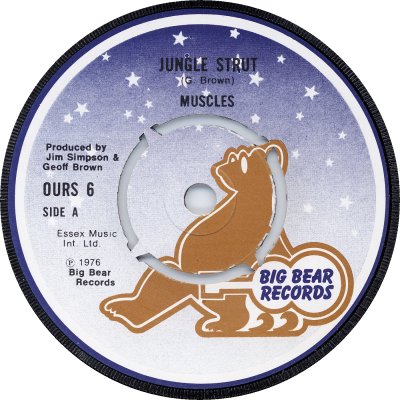
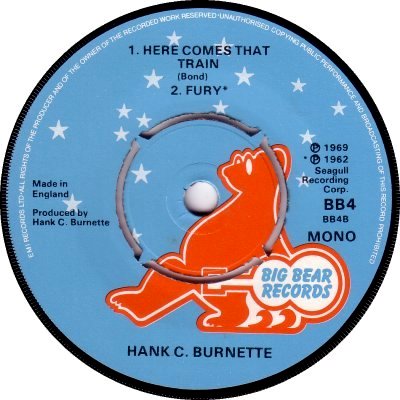
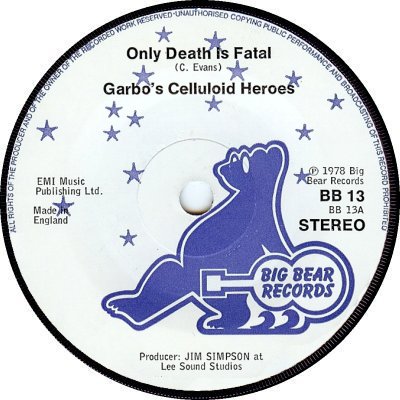
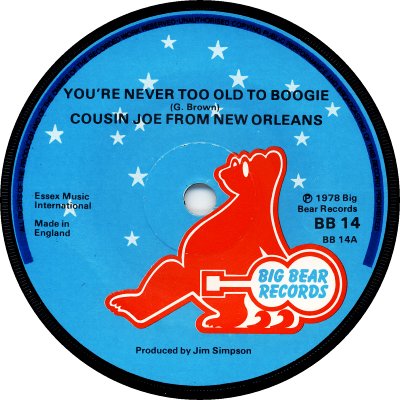
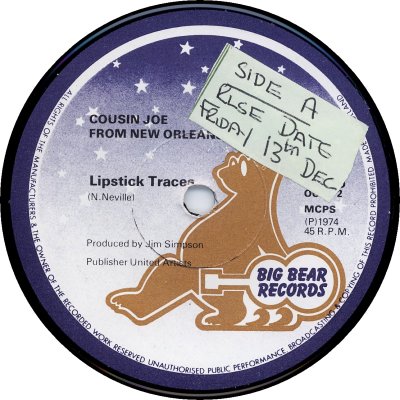
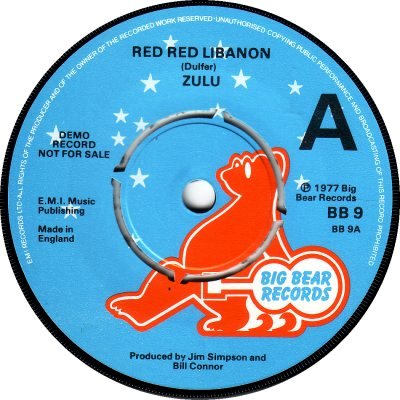
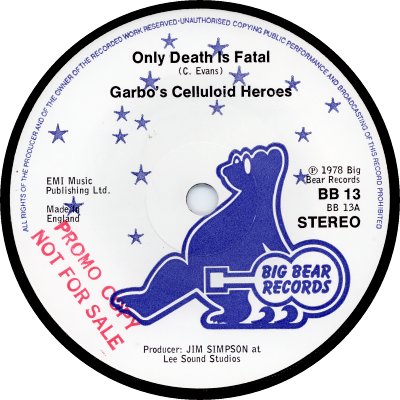
An independent record company and management agency from Birmingham, owned by Jim Simpson. The first Big Bear single, 'Rudi The Red-Nosed Reindeer' b/w 'White Christmas' by The Steam Shovel, came out in November 1968 through Trojan, and had a Trojan catalogue number, TR-635 (1). The 'Steam Shovel' was actually a pseudonym for the Locomotive, who Simpson managed; the band was contracted to Parlophone but the single was turned down by that label, so Simpson formed his own company in order to release it. Somewhat belatedly 'Record Retailer' only gave Big Bear its first mention in the issue of 29th of January, in an article which said that the label was to be lauched 'shortly', through Island. Despite that claim the Steam Shovel record was Big Bear's only release for some time. 'RR' of the 8th of May 1971 described the company as a management and promotion concern and noted that it was expanding to add an agency division, but made no mention of a record label or production company. 'Music Week' of the 23rd of September 1972 was able to report that Big Bear was making a return to the record business: Jim Simpson had signed a one-year deal with Polydor to provide Blues material for that company to issue as its 'Big Bear Blues Series'. At least four albums resulted, during the period 1972-73; the records came out on the Polydor label but had a credit to Big Bear on the sleeve. This time around the logo featured a cooler-looking bear, carrying a guitar in a case. Things don't appear to have gone altogether smoothly, however, and 'MW' of the of April 1974 said that, as the deal with Polydor hadn't worked out, Big Bear was looking for a deal in the UK; in the meantime it was 'alive and releasing in the Benelux countries'. At the time of the Polydor LPs, Big Bear was working out of premises in Deblen Drive, Quinton, B32.
Big Bear reappeared as a label in its own right in the autumn of 1974 via a link-up with Transatlantic Records (q.v.), the event being marked by an advert in 'MW' of the 12th of October which said that the company's current product was now available through Transatlantic. A month later, 'MW' of the 16th of November 1974 revealed that Big Bear, a 'Blues label' had its first two singles out, so it seems that the October product may have consisted of some of the LPs that had previously been available abroad. Singles were numbered in an OURS-0 series, and the label design featured the 'cool' bear, coloured brown, against a starry dark blue background (2, 3). For some reason, with OURS-4 and OURS-6 the perimeter text disappeared (5). The company spent almost two years with Transatlantic before signing a licensing agreement with EMI towards the end of 1976; 'MW' of the 27th of November reported on the move and said that the first three singles under the new arrangement had been released. There had been some contact between Big Bear and EMI not long before: 'Jungle Strut' by Muscles (OURS-6) had been licensed to EMI and released on the EMI International label (INT-525; 8/76). The singles were given a new numerical series, BB-1, and the label design, while remaining basically the same, changed colours, the bear turning red and the background a light blue (6).
Billboard (18th December 1976) reported that the deal with EMI was to be a three-year one, but in the event it seems to have only lasted for around a year-and-a half. 'MW' of the 1st of April 1978 broke the news that Big Bear had ended its agreement with EMI and had decided to continue as an independent, doing its own pressing, marketing and distribution. The first single under the new arrangement would be BB-13, 'Only Death Is Fatal' by Garbo's Celluloid Heroes'. 'MW' of the 8th of April was able to add that manufacture was currently being done by Linguaphone, with distribution being handled by a handful of independents including Lightning, H.R. Taylor, Wynd Up and Scotia. 'Music Master' has the Garbo's single and several other Big Bear singles listed as being available through Lugtons from July 1978; it may be that one or two of them were available from other distributors over the previous couple of months. 'Music Week' has Lugtons, Taylor and Lightning handling BB-19, after which there appears to have been a break of about a year, on the singles front at least. By the time singles started coming out again, in August 1979, Pinnacle had taken over distribution ('MW', 25th August). During the independent years the label design remained the same as it had been during the EMI years, though the colour changed for the occasional single: BB-13 was blue-on-white (7), BB-20 white-on-black. Some EMI-era labels were used, with the reference to EMI around the perimeter blotted out (8). By that time the company had moved to Monument Road, Ladywood, B16.
With regard to manufacturing, Transatlantic, as an independent company, got the job done where it could, often turning to Pye and Phonodisc. Sometimes it had to look abroad for available capacity, which resulted in the first two Big Bear singles being pressed in Holland - a reference to that country can be seen in the perimeter print, at 2 o'clock (2). Phonodisc pressed at least two singles, one of which had paper labels (3), the other injection-moulded ones (4) . Promo copies of early sinles appear to have been denoted by the use of handwritten stickers (9). The move to EMI led to the introduction of specially marked labels for promos (10); promo copies of BB-13, the first post-EMI single, were handstamped (11), as were those of BB-23.
Big Bear was renowned for its blues LPs, by the likes of Dr. Ross, Lightnin' Slim and Homesick James, but it also recorded local talent such as New Wave band the Quads - who gave the company its only hit when 'There Must Be Thousands' b/w 'You've Gotta Jive' (BB-23; 8/79) reached the No. 66 spot in the Charts - and Soul / Funk band Muscles. As an aside, according to 'MW' of the 2nd of September 1978 Big Bear was registered as a company in 1968 using the 'grizzy bear' logo and only applied to register the 'guitar bear' logo in 1977, despite using it since 1971. The Trade Mark Journal invited objections to the application and received one from Bearsville Records (q.v.), which was presumably rejected. In the '80s the company turned its attention to Jazz and Swing music, and it is still in operation today; it has a website at http://www.bigbearmusic.com . In the late '70s and early '80s it boasted a small subsidiary, Grandstand Records (q.v.). Thanks to Robert Bowes for the sixth scan. The discography below only covers the first single and those from the 1970s.
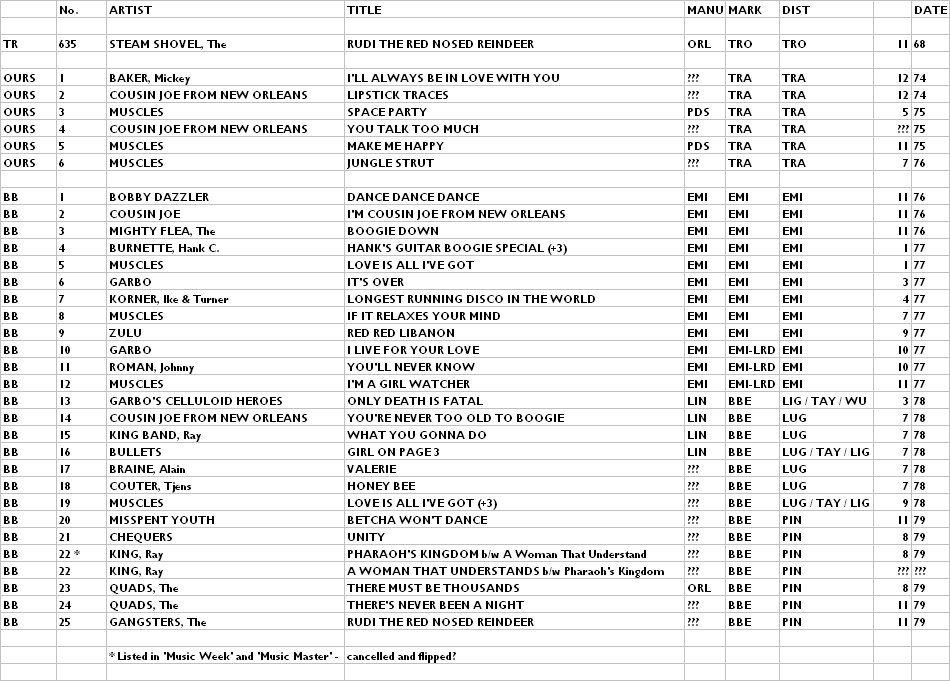


Copyright 2006 Robert Lyons.

